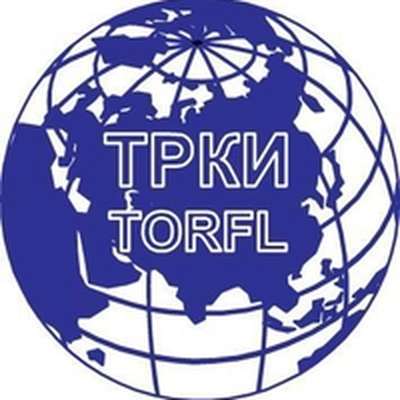
One of the prizes for the finalists of the International Online Olympiad in Russian as a Foreign Language will be the opportunity to take the internationally recognised Test of Russian as a Foreign Language (http://testingcenter.spbu.ru/testirovanie/trki.html) free of charge in one of the 100 St Petersburg University Testing Centres around the globe. Yet, how to prepare effectively for the test? Or how to prepare your students for the test?
Unfortunately, there is no way to see all the material for the TORFL test collected in one place, no textbook where you could find the answers to all questions of the TORFL test-takers and their teachers. But do not despair, there are many Russian language textbooks that will help you feel confident on the exam and show excellent results.
What are the best textbooks to prepare effectively for the TORFL-I (B1)? Here are some of the books recommended for the TORFL test-takers.
1. L. Belikova, T. Shutova, S. Stepanova. Pervyye shagi. Part 3, and V. Antonova, M. Nakhabina. Doroga v Rossiyu. Part 3
These textbooks are parts of course book packages, often studied after the previous part has been worked through. Part 1 caters to students of level A1, Part 2 to students of level A2, and Part 3 to B1 students. These textbooks are particularly valuable due to the fact that they apply the structured, systematic approach to foreign language learning. It is no surprise therefore, that they are very popular among educators. They are suitable for long-term Russian language courses, both in Russia and abroad, as well as for self-study.
2. S. Chernyshov, A. Chernyshova. Poyekhali! Part 2.II
This is one of the most popular textbooks of Russian as a foreign language worldwide. Despite the fact that technically this book is part of a series, it can be used on its own, for, while the parts are, indeed, designed so that they capitalise on the previous ones, they are not interdependent. This textbook is likely to be more suitable for studying in Russia, but can be also used alongside the units of the main course book overseas. Most students love it because it contains many creative and engaging activities.
3. T. Kapitonova. Zhiviom i uchimsya v Rossii
In this textbook, there is ample material for developing listening, reading and retelling skills. It is often used in preparation directly for TORFL, since the textbook’s structure and content of the tasks can be easily adapted to the TORFL exam format.
4. T. Esmantova. 5 elementov
This book is intended primarily for speakers of one of the European languages (particularly English or German). The textbook successfully combines interactive learning methods with thorough study and practice of all required grammatical categories. It can be used either as the main course textbook, or as a supplementary grammar reference book.
5. N. Volkova, D. Philips Let’s Improve Our Russian
The textbook is crafted for English-speaking students. It provides detailed explanations of the intricacies of Russian grammar in both Russian and English; therefore, it is suitable for self-study. The textbook contains three parts. Part 1 offers ample study material to be sufficiently prepared for B1 level exam (TORFL-I), while Parts 2 and 3 will be more useful for developing learners’ Russian language skills at the higher levels.
6. L. Moskvitina. V mire novostey
As with the previously mentioned book, this workbook provides study material for those who gained language skills at level B1 or the level above B1 (Level B2). It is specifically designed for practicing reading and listening skills. However, this book is not intended for self-study practice. It is regularly republished, and teachers always prefer the latest edition, since the news (which is the main content of the book), unfortunately, becomes outdated rather quickly.
7. I. Odintsova. Chto vy skazali?
This workbook is also most often used to supplement the material in the main course book. It contains a large number of interactive and communicative speaking tasks. This enables learners to broaden their vocabulary and improve their speaking skills. The workbook may be also used at the higher levels – for revision.
We hope that our recommendations will help you choose study guides and effectively prepare for the test.